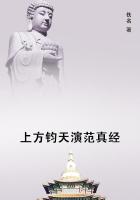They would not think it a hardship to walk a mile and a half, or twenty miles, to a public-house, but when they go to their work they think it dreadful to have to walk a yard. Perhaps they would like us to lend them the wagonette to drive in?""I have no doubt they would," said Trefusis, beaming at her.
"Pray leave me to manage here, Jane; this is no place for you.
Bring Erskine to the house. He must be--""Why don't the police make them go away?" said Lady Brandon, too excited to listen to her husband.
"Hush, Jane, pray. What can three men do against thirty or forty?""They ought to take up somebody as an example to the rest.""They have offered, in the handsomest manner, to arrest me if Sir Charles will give me in charge," said Trefusis.
"There!" said Lady Jane, turning to her husband. "Why don't you give him--or someone--in charge?""You know nothing about it," said Sir Charles, vexed by a sense that she was publicly ****** him ridiculous.
"If you don't, I will," she persisted. "The idea of having our ground broken into and our new wall knocked down! A nice state of things it would be if people were allowed to do as they liked with other peoples' property. I will give every one of them in charge.""Would you consign me to a dungeon?" said Trefusis, in melancholy tones.
"I don't mean you exactly," she said, relenting. "But I will give that clergyman into charge, because he ought to know better. He is the ringleader of the whole thing.""He will be delighted, Lady Brandon; he pines for martyrdom. But will you really give him into custody?""I will," she said vehemently, emphasizing the assurance by a plunge in the saddle that made the bay stagger.
"On what charge?" he said, patting the horse and looking up at her.
"I don't care what charge," she replied, conscious that she was being admired, and not displeased. "Let them take him up, that's all."Human beings on horseback are so far centaurs that liberties taken with their horses are almost as personal as liberties taken with themselves. When Sir Charles saw Trefusis patting the bay he felt as much outraged as if Lady Brandon herself were being patted, and he felt bitterly towards her for permitting the familiarity. He uas relieved by the arrival of the procession. It halted as the 1eadere came up to Trefusis, who said gravely:
"Gentlemen, I congratulate you on the firmness with which you have this day asserted the rights of the people of this place to the use of one of the few scraps of mother earth of which they have not been despoiled.""Gentlemen," shouted an excited member of the procession, "three cheers for the resumption of the land of England by the people of England! Hip, hip, hurrah!"The cheers were given with much spirit, Sir Charles's cheeks becoming redder at each repetition. He looked angrily at the clergyman, now distracted by the charms of Lady Brandon, whose scorn, as she surveyed the crowd, expressed itself by a pout which became her pretty lips extremely.
Then a middle-aged laborer stepped from the road into the field, hat in hand, ducked respectfully, and said: "Look 'e here, Sir Charles. Don't 'e mind them fellers. There ain't a man belonging to this neighborhood among 'em; not one in your employ or on your land. Our dooty to you and your ladyship, and we will trust to you to do what is fair by us. We want no interlopers from Lunnon to get us into trouble with your honor, and--""You unmitigated cur," exclaimed Trefusis fiercely, "what right have you to give away to his unborn children the liberty of your own?""They're not unborn," said Lady Brandon indignantly. "That just shows how little you know about it.""No, nor mine either," said the man, emboldened by her ladyship's support. "And who are you that call me a cur?""Who am I! I am a rich man--one of your masters, and privileged to call you what I please. You are a grovelling famine-broken slave. Now go and seek redress against me from the law. I can buy law enough to ruin you for less money than it would cost me to shoot deer in Scotland or vermin here. How do you like that state of things? Eh?"The man was taken aback. "Sir Charles will stand by me," he said, after a pause, with assumed confidence, but with an anxious glance at the baronet.
"If he does, after witnessing the return you have made me for standing by you, he is a greater fool than I take him to be.""Gently, gently," said the clergyman. "There is much excuse to be made for the poor fellow.""As gently as you please with any man that is a free man at heart," said Trefusis; "but slaves must be driven, and this fellow is a slave to the marrow.""Still, we must be patient. He does not know--""He knows a great deal better than you do," said Lady Brandon, interrupting. "And the more shame for you, because you ought to know best. I suppose you were educated somewhere. You will not be satisfied with yourself when your bishop hears of this. Yes," she added, turning to Trefusis with an infantile air of wanting to cry and being forced to laugh against her will, "you may laugh as much as you please--don't trouble to pretend it's only coughing--but we will write to his bishop, as he shall find to his cost.""Hold your tongue, Jane, for God's sake," said Sir Charles, taking her horse by the bridle and backing him from Trefusis.
"I will not. If you choose to stand here and allow them to walk away with the walls in their pockets, I don't, and won't. Why cannot you make the police do something?""They can do nothing," said Sir Charles, almost beside himself with humiliation. "I cannot do anything until I see my solicitor.
How can you bear to stay here wrangling with these fellows? It is SO undignified!""It's all very well to talk of dignity, but I don't see the dignity of letting people trample on our grounds without leave.















